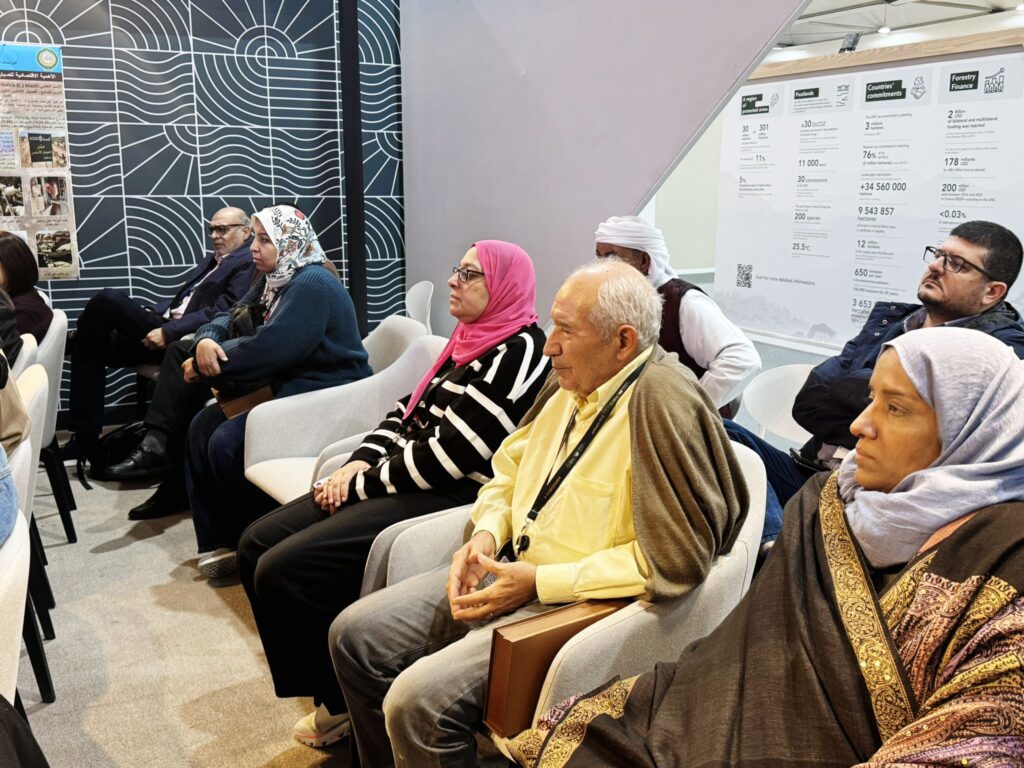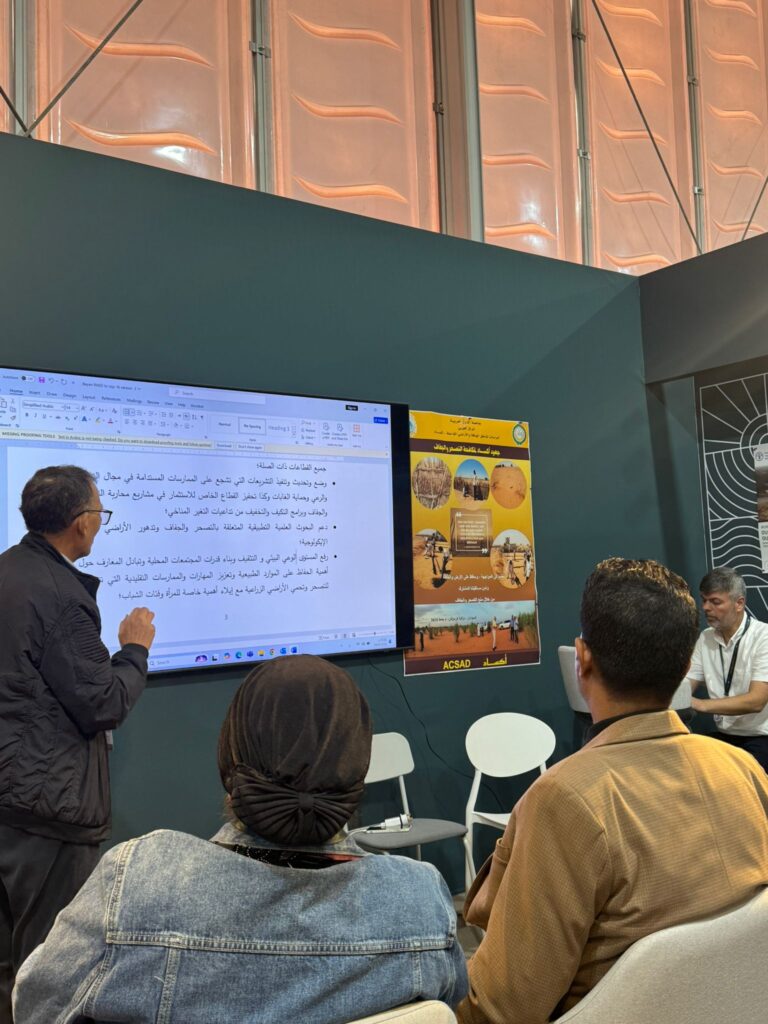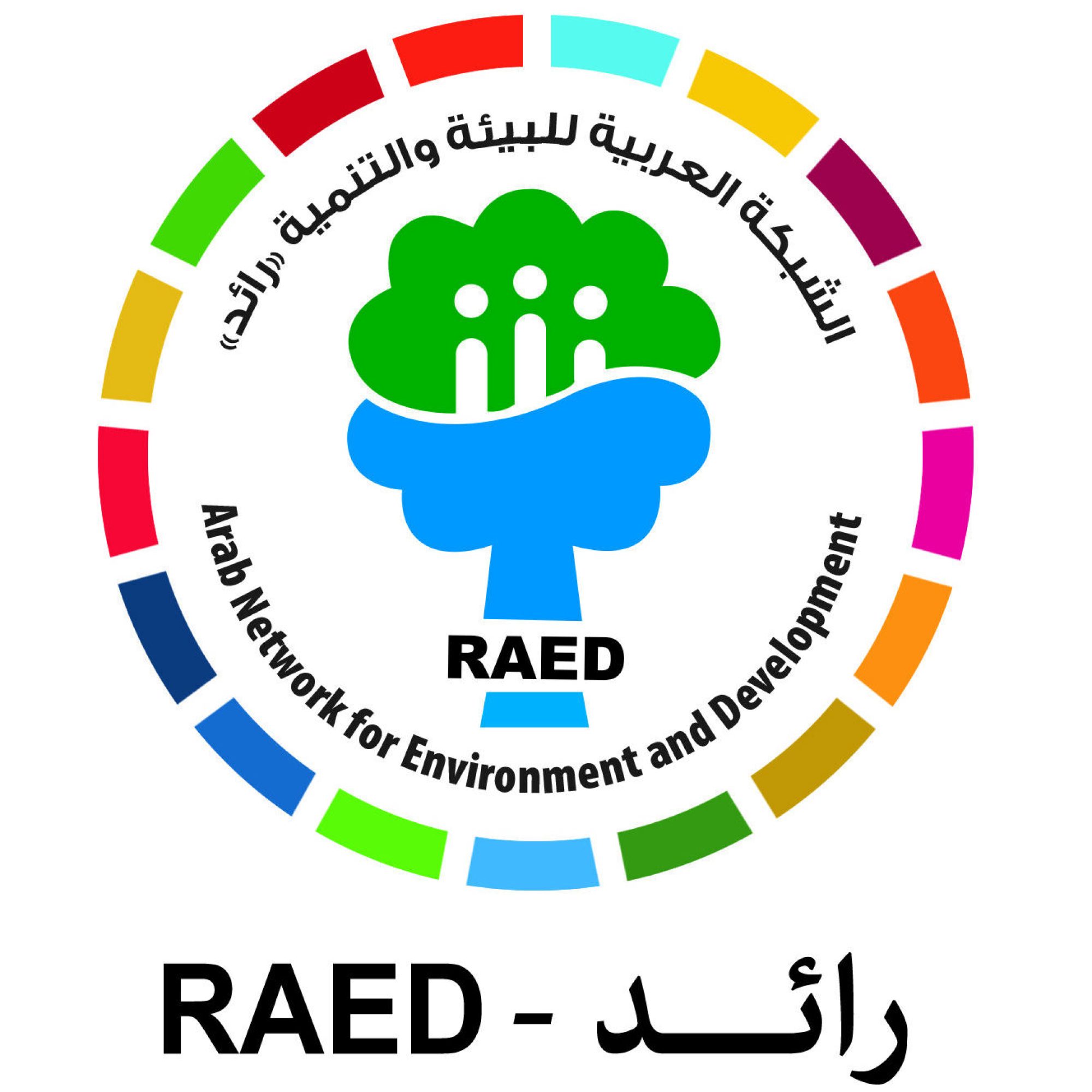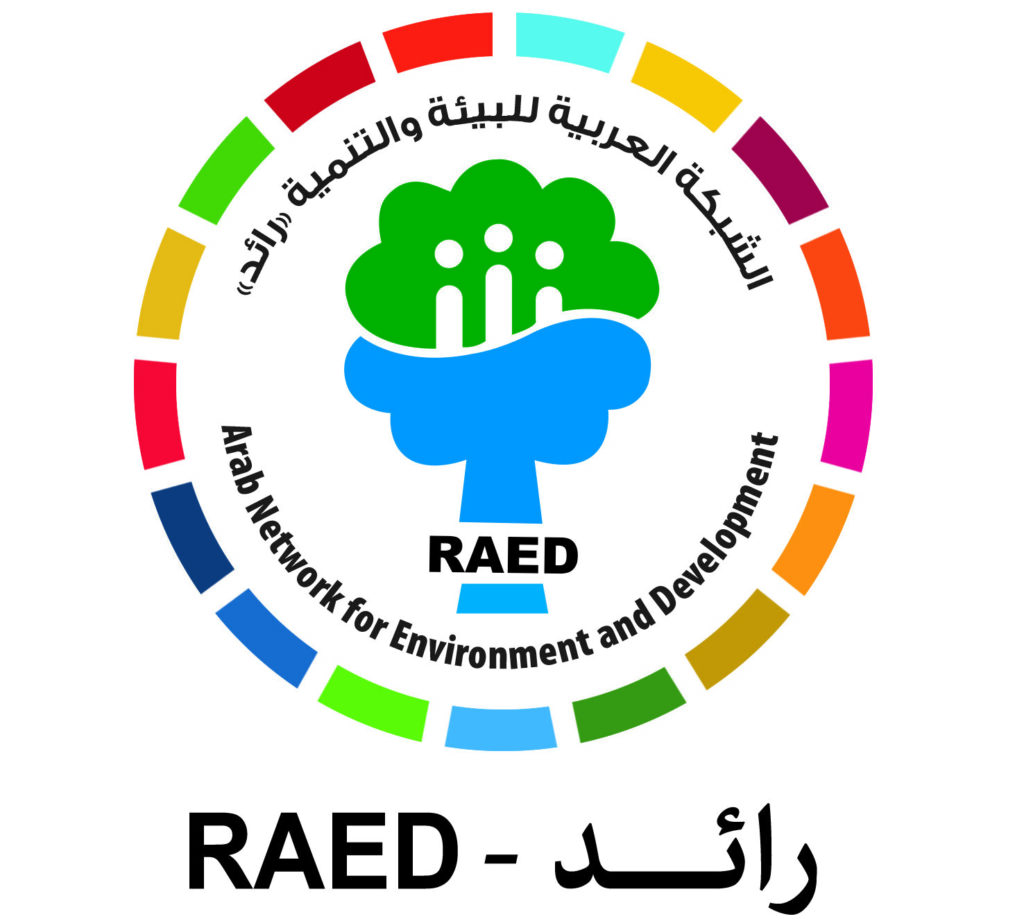RAED Network Submits Arab Civil Society Statement to COP 16 in Riyadh
Increasing Challenges for the Region Due to Desertification, Drought, and Land Degradation
Integrated National Policies, Regional Cooperation, and Comprehensive Peace as Cornerstones for Progress
The Arab Network for Environment and Development (RAED) submitted a statement on behalf of Arab civil society organizations to the presidency of the United Nations Convention to Combat Desertification (UNCCD) COP 16, held in Riyadh, Saudi Arabia, from December 2 to 13, 2024. In the statement, RAED members, representing civil society across Arab nations, expressed profound concern over the escalating challenges facing the region due to worsening desertification, drought, and land degradation. They emphasized the urgent need for collective action at national, regional, and international levels.
The statement highlighted that approximately 68% of the Arab region’s total land area is affected by desertification, posing direct threats to food, economic, and social security. The accelerating impacts of desertification, drought, and sandstorms—aggravated by climate change—have reduced agricultural land to just 12% of the total area, leading to declining agricultural output and heightened risks to water and food security.
It further stressed the interconnectedness of desertification with other pressing environmental challenges in the Arab world, including increased frequency of extreme weather events, recurrent droughts, water scarcity, biodiversity loss, and issues of displacement and migration. These factors compromise food sovereignty, ecosystem sustainability, and livelihoods, particularly in vulnerable communities, fueling further migration and urbanization pressures.
Unsustainable water consumption in agriculture and other sectors exacerbates land degradation, creating a vicious cycle of reduced agricultural productivity, intensified desertification, and biodiversity loss. This situation is compounded by ongoing conflicts and occupation, which drain natural resources and deepen desertification, particularly in fragile communities, widening poverty gaps.
RAED’s statement underscored the growing concerns of Arab civil society regarding the expansion and worsening of desertification, driven by both climate change and unsustainable human activities. It acknowledged that desertification is no longer a transient environmental issue but a significant threat to the entire Arab region. The network commended ongoing efforts at international, regional, national, and local levels to combat desertification and drought and protect ecosystems.
The statement also praised the contributions of Saudi Arabia’s Ministry of Environment, Water, and Agriculture, and the Murooj Foundation, in facilitating and supporting the participation of Arab and international civil society representatives at COP 16. Their efforts provided a platform to showcase experiences, exchange knowledge, and foster future partnerships. It reaffirmed RAED’s commitment to strengthening partnerships among all stakeholders to combat desertification, halt land degradation, and build the resilience of affected communities.
Arab civil society organizations affirmed their determination to build robust partnerships to develop strategies and action plans for addressing desertification, drought, and land degradation, ensuring the protection of natural resources and achieving sustainable development in the region.
At the national level, civil society organizations committed to developing integrated strategies to combat desertification and drought, while updating legislation to promote sustainable practices in agriculture, grazing, and forestry. They also emphasized the importance of encouraging private sector investment in combating desertification and addressing climate change impacts. Further commitments included supporting scientific research and practical applications in the field, raising environmental awareness, building local community capacities, and fostering knowledge sharing on conserving natural resources. Additionally, they stressed the need for adopting effective mechanisms for cooperation and partnership-building to combat desertification.
At the regional level, efforts will focus on strengthening coordination and cooperation mechanisms to address desertification and drought, supporting relevant Arab regional institutions, and documenting and sharing knowledge, experiences, and best practices among Arab countries. The creation of networks and platforms for knowledge exchange will be prioritized, along with providing technical support and training to build the capacities of Arab civil society organizations. These efforts aim to enhance the skills of practitioners working on anti-desertification and drought mitigation projects.
On the international front, civil society organizations stressed the importance of achieving comprehensive and just peace in the Arab region as a fundamental pillar of sustainable development. They called for upholding and implementing international agreements related to desertification, climate change, and biodiversity, emphasizing the interconnectedness of these issues. The organizations urged industrialized nations to fulfill their commitments by providing financial and technical assistance to developing and affected countries. This support is vital for helping Arab countries plan and implement strategies to combat desertification, climate change, and biodiversity loss, while achieving their sustainable development goals.




